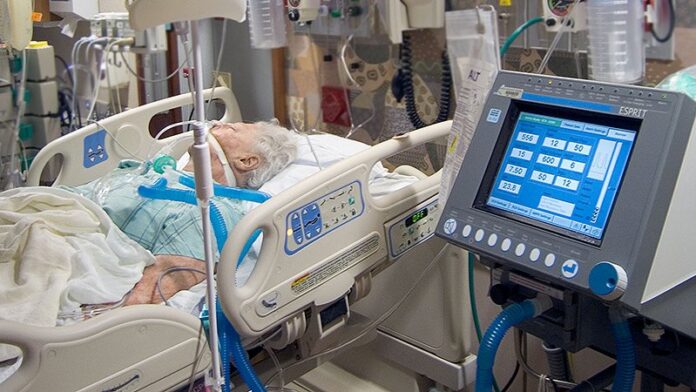Experts claim the new development could have important implications for further care practices for those who are particularly vulnerable to a second wave of coronavirus infections.
Data gathered from King’s College London’s Covid Symptom study app created a model to establish which patients are most likely to require breathing support and hospitalisation based on their earliest symptoms.
The researchers claimed that the majority of patients that required breathing support present at hospitals 13 days after they first show symptoms of the virus.
Knowing those who are at higher risk of severe infection by as early as day five could help save hundreds of lives.
Study author Dr Claire Steves, from King’s College London, added: “If you can predict who these people are at day five, you have time to give them support and early interventions such as monitoring blood oxygen and sugar levels, and ensuring they are properly hydrated – simple care that could be given at home, preventing hospitalisations and saving lives.”
Results from artificial intelligence which tested whether or not symptoms appeared together and how they progressed found six clusters.
1. Flu-like with no fever
People in this cluster will have a headache, loss of smell, muscle pains, cough, sore throat, chest pain, no fever.
2. Flu-like with fever
Patients in this cluster will experience headache, loss of smell, cough, sore throat, hoarseness, fever and a loss of appetite.
3. Gastrointestinal
Those in this cluster will experience headaches, loss of smell, loss of appetite, diarrhoea, sore throat, chest pain, no cough.
4. Severe level 1, fatigue
Again people in this cluster will experience headaches, loss of smell, cough, fever, hoarseness, chest pain, fatigue.
5. Severe level 2, confusion
Patients will experience headaches, loss of smell, loss of appetite, cough, fever, hoarseness, sore throat, chest pain, fatigue, confusion, muscle pain
6. Severe level 3, abdominal and respiratory
Patients in this category will have a whole host of symptoms such as headache, loss of smell, loss of appetite, cough, fever, hoarseness, sore throat, chest pain, fatigue, confusion, muscle pain, shortness of breath, diarrhoea and abdominal pain.
Headaches are a prominent symptom and this latest research comes after experts at Imperial College London revealed that 62 per cent of patients suffered from headaches.
The King’s College researchers said they had also recently identified skin rash as another key symptom.
The study – which has not yet been peer reviewed – included 1,000 users from the UK, US and Sweden, who all logged their symptoms in May.
The team found that patients in the severe clusters were more likely to be overweight, older and frailer.
They also found they were more likely to have underlying health conditions such as lung disease and diabetes.
Sebastien Ourselin, professor of healthcare engineering at King’s College London and senior author on the study, said: “Being able to gather big datasets through the app and apply machine learning to them is having a profound impact on our understanding of the extent and impact of Covid-19, and human health more widely.”
The Sun



